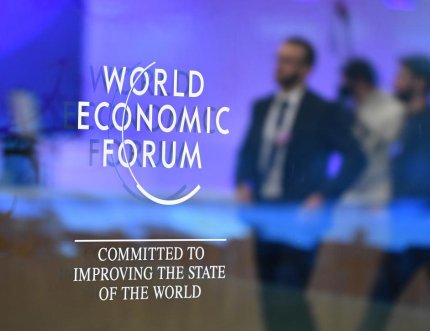The report by analysts of the World Economic Forum, Global Risk Report 2025, lists the most significant global risks this year, among which the beginning of new armed conflicts is in first place.
Points of attention
- World Economic Forum analysts have identified the biggest risks for 2025, with armed conflicts and extreme weather events topping the list.
- The Global Risk Report 2025 highlights the increasing uncertainty in geopolitical, environmental, social, economic, and technological areas, resembling one of the most uncertain periods since the Cold War.
- The report outlines key threats such as trade wars, disinformation, economic downturn, critical ecological changes, and societal polarization that could impact global stability in the coming years.
- The analysis includes perspectives from over 900 experts, focusing on short-term, medium-term, and long-term risks up to 2035, indicating a volatile global outlook for the next decade.
- Instances of armed conflicts, extreme weather events, trade wars, disinformation, and economic downturn are among the critical risks that may shape the world's future, emphasizing the need for proactive measures to address these challenges.
What WEF analysts identify as the biggest risks to the world
The report includes the results of the Global Risk Survey with assessments from over 900 experts from around the world.
Global risks were analyzed in the short-term, limited exclusively to 2025, the medium-term — for the period until 2027, and the long-term, for the period until 2035, perspectives.
In particular, in the medium term, the key risks are the spread of disinformation, and in the long term, extreme weather events due to climate change.

The report's authors note that global prospects are becoming increasingly uncertain, including geopolitical, environmental, social, economic, and technological areas.
We appear to be living in one of the most uncertain periods since the Cold War, and this is reflected in the report's findings, which show bleak prospects across all three time horizons, the report's authors emphasize.
Most analysts expect the global outlook to be volatile over the next two years.
At the same time, 62% of the surveyed experts believe that instability will cover the period of the next 10 years.
What are the ten biggest risks threatening the world in 2025?
Armed conflicts . Analysts include the risk of new wars, terrorism, coups d'état, civil conflicts,
Extreme weather events . Analysts expect natural disasters to increase due to climate change.
Trade wars . These risks include the introduction of sanctions policies, the introduction of tariffs on goods and services, and the economic isolation of leading countries.
Disinformation . The spread of false data using social media and artificial intelligence systems.
Polarization of society . A process that is exacerbated by inequality of social benefits and differences in values.
Economic downturn . A global decline in economic performance or recession and a reduction in investment.
Critical change in the planet's ecosystems . As a result of human activity on Earth, biodiversity is decreasing and environmental degradation is occurring.
Lack of economic opportunities . This process encourages residents of poor countries to migrate and also increases social discontent.
The decline of the system for protecting human rights and civil liberties . Analysts include the weakening of protection of freedom of speech, the right to assembly, access to information, protection of personal data, increased state control, increased censorship, and the introduction of surveillance technologies.
Inequality : Social inequality is increasing due to the aggravation of economic and social problems, causing instability.
More on the topic
- Category
- Ukraine
- Publication date
- Додати до обраного


